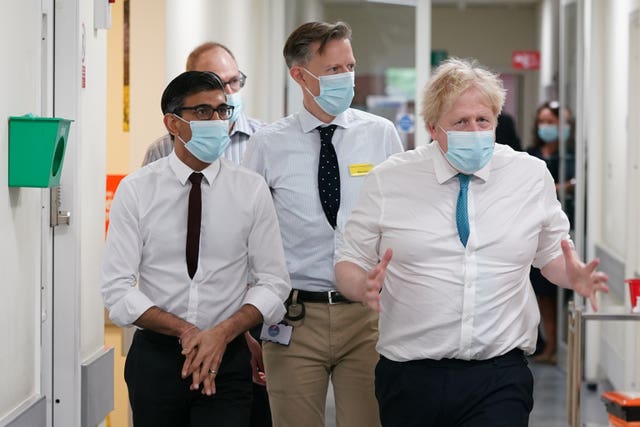
The Health Secretary has urged people to come forward for NHS care as he set out plans to tackle the huge backlog caused by the pandemic.
Sajid Javid told MPs in the Commons the NHS aims to “eliminate” waits of over 18 months by April 2023, and waits over 65 weeks by March 2024.
Around six million people in England are on the NHS waiting list for treatment, including hip and knee replacements, cataract surgery and tests.
Mr Javid said: “Assuming half of the missing demand from the pandemic returns over the next three years, the NHS expect waiting lists to be reducing by March 2024.

“Addressing long waits is critical to the recovery of elective care and we will be actively offering longer waiting patients greater choice about their care to help bring these numbers down.
“The plan sets the ambition of eliminating waits of longer than a year, waits in elective care, by March 2025.
“With this no-one will wait longer than two years by July this year and the NHS aims to eliminate the waits of over 18 months by April 2023 and over 65 weeks by March 2024.”
Mr Javid said an estimated 10 million people are thought to have stayed away from the NHS during the pandemic and, despite the NHS’s “exceptional efforts”, there “is now a considerable Covid backlog of elective care”.
He added: “1,600 people have waited longer than a year for care before the pandemic. The latest data shows that this figure is now over 300,000.
“On top of this, the number of people waiting for elective care in England now stands at six million – that is up from 4.4 million before the pandemic.
“Sadly, this number will continue rising before it falls… I want these people to know that the NHS is open. I want them to come forward for the care they need.”
There has been frustration over delays to publication of the NHS recovery plan, with reports that the Treasury had intervened over concerns it might not offer value for money.
Earlier this week, the Prime Minister promised to be tough on cancer targets, citing plans to hit targets that already exist.
He said that, from March of next year, nobody should have to wait more than two months for cancer treatment.
An existing target says people should wait no more than 62 days between an urgent referral for suspected cancer and the start of treatment, but this is not being met.


Comments: Our rules
We want our comments to be a lively and valuable part of our community - a place where readers can debate and engage with the most important local issues. The ability to comment on our stories is a privilege, not a right, however, and that privilege may be withdrawn if it is abused or misused.
Please report any comments that break our rules.
Read the rules here